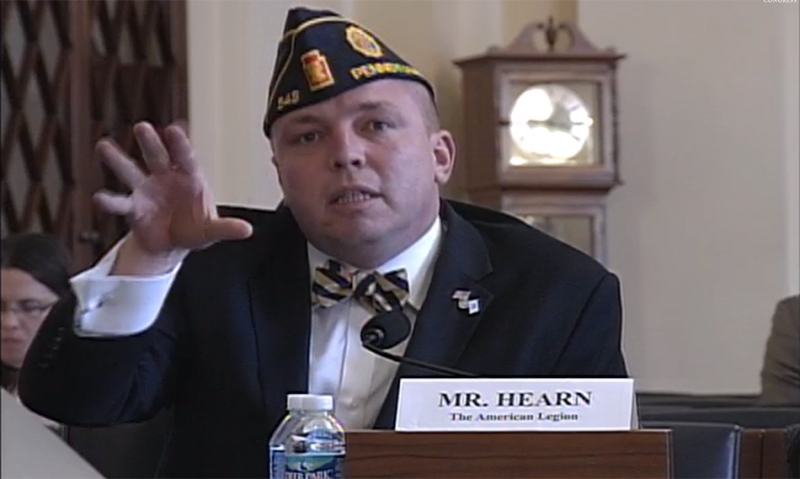
With four current judges retiring, more judges need to be added to the U.S. Court of Appeals for Veterans Claims.
Within the next two years, the number of judges on the U.S. Court of Appeals for Veterans Claims (CAVC) could drop to five – four less than its current authorized level – through a series of retirements. Given the fact that claims appeals have risen by more than 55 percent in the last five years, the reduced number of judges could spell disaster for thousands of veterans seeking their benefits.
“VA routinely states that with increased adjudications, you should expect increased appeals,” said Zachary Hearn of The American Legion in his prepared remarks at an April 14 congressional hearing. “Using that logic, it would stand to reason that the CAVC should also expect an increased number of claims appealed to the Court.”
Testifying before the House Subcommittee on Disability Assistance and Memorial Affairs, Hearn said Congress needs to act now to expand the number of judges on the court, “instead of waiting to see this impact and watch veterans continue to suffer.”
A House bill supported by The American Legion, H.R. 1067, would extend the temporary expansion of judges for the court, helping to ensure its ability to handle the increased rate of appeals in a timely manner.
The Legion opposes another piece of pending House legislation, the American Heroes COLA Act of 2015 (H.R. 677). Like a previous bill floated in 2012, it would link the cost-of-living adjustment (COLA) for veterans’ disability compensation to the Chained-Consumer Price Index (C-CPI). As a result, COLA adjustments would be automatically indexed to those authorized for Social Security recipients and nonservice-connected disability recipients.
“The American Legion remains steadfast against the bill,” Hearn told the subcommittee. “We are not the only organization with significant concerns surrounding linking veterans’ benefits to the chained-CPI. Two years ago, AARP reported that ‘a 30-year old veteran of the Iraq or Afghanistan war who has no children and is 100 percent disabled would likely lose about $100,000 in compensation by age 75’ in today’s dollars.”
While The American Legion understands the intention of Congress to remove veterans from the annual political debate over COLA increases, hundreds of thousands of dollars potentially lost to some of the country’s most vulnerable veterans is a serious concern.
The Legion stated in its written testimony that the reason behind its opposition to H.R. 677 “is that veterans sometimes have needs and expenses, which should be considered on their own merits, rather than being simply lumped in with Social Security for simple expediency.”
The Pay As You Rate Act (H.R. 1414) is another pending bill strongly supported by the Legion; it would direct VA to pay disability benefits to veterans as soon as documentation determines they are eligible, regardless of other issues that may be pending in their claims.
“VA already has the capability to do what this bill intends,” Hearn testified. “Unfortunately, it has been our experience that veterans’ claims are not adjudicated as they become available for benefits. Instead, VA often waits to adjudicate all issues en masse. This practice can be costly to veterans.”
Not only can veterans lose compensation by waiting for their claims to be fully adjudicated, they may also be denied the ability to seek VA treatment for their conditions.
In December 2012, NBC News reported that 45 percent of veterans serving in the Iraq and Afghanistan wars filed for disability benefits. On average, they claimed service connection for about nine medical conditions, twice the rate of claims filed by Vietnam War veterans.
- Legislative

